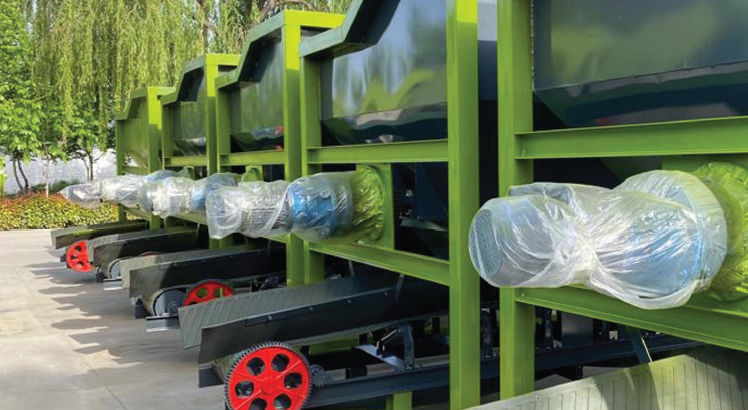Kwacha drop delays fertiliser plant roll out
The Rural Development Investment (Rudevit) Holdings has shifted the rollout of its organic fertiliser production plant to the third quarter of this year due to devaluation-related cost implications.
In an interview on Thursday, Rudevit Holdings managing director Hastings Bofomo Nyirenda said the fertiliser plant, which is located in Chileka, Blantyre, has proved to be costly over time.

He said: “The fertiliser project was commenced initially as a small project which has turned out to be of higher cost than projected which has been as a result of the most recent devaluations.
“We had projected to spend up to K1.2 billion, but this has already shot up so much.”
Nyirenda said further to that, Cyclone Freddy also delayed works as the project site was inaccessible for over three months.
He said: “Our revised targets are that by July, we should complete all civil works on the superstructure and factory buildings together with stock piling of our raw materials.
“As such, we are targeting part of the 2024/25 season and winter season of 2024/25.”
Meanwhile, Nyirenda has said the substructure was completed and the project is awaiting the commencement of the superstructure which is the main factory building.
“The machinery is set at three metric tonnes per hour, thereby giving around 20 000MT output per annum.
“We could not install any bigger machine since that would have meant bringing raw materials from longer distances to meet that higher capacity,” he said.
Agriculture expert, Frighton Njolomole, who is also Farmers Union of Malawi former president, said in an interview on Thursday that the fertiliser project is important to the country’s economic development as it has potential to reduce import bill and save the country’s foreign exchange.
He said organic fertilisers are environmentally friendly and authorities should find ways of promoting such ventures so that they can also participate in the Affordable Inputs Programme (AIP) which mostly relies on inorganic fertilisers.
Said Njolomole: “Agriculture remains the backbone of Malawi’s economy, but issues of productivity remain a challenge as most smallholder farmers cannot afford a bag of fertiliser.
“It is our hope that with the coming of such projects, price of fertiliser will start to go down.”
Rudevit Holdings is expected to be producing 20 000 metric tonnes of fertiliser annually.
The firm is currently selling shares at K7.50 to raise capital.
It currently has 800 shareholders.
Initially, the fertiliser plant was expected to open in first quarter of 2023, but the continued weakening of the kwacha almost tripled some costs, delaying the whole venture by about a year.
The Reserve Bank of Malawi first devalued the kwacha by 25 percent in May 2022 and further realigned the local unit by 44 percent in November last year.





